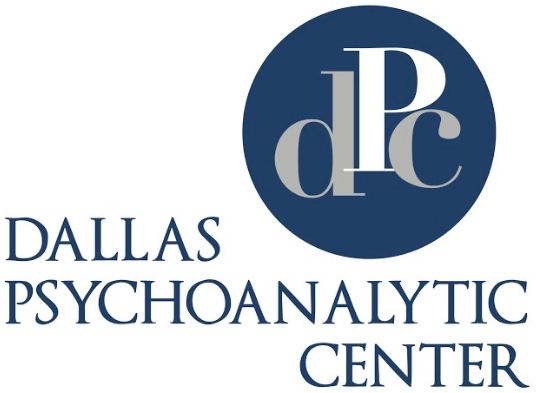
DPC Presents
Title: Trauma, Psychedelics, and Psychoanalysis
Presenter: Jeffrey Guss, M.D. & Lawrence Fischman, M.D.
Date/Time: Saturday, April 27, 2024 9:00 am - 3:30 pm CENTRAL TIME
Location: Virtual via Zoom from Dallas, TX
Credit Hours: 6 credit hours
REGISTER HERE
Description:
Part 1: A Brief History of Psychedelic Psychoanalytic Therapy, and an Introduction to Psychedelic Phenomenology, presented by Jeffrey Guss, MD
The talk will begin with a brief review of the history of psychedelic psychoanalytic treatment in the United States and Europe. Following this, an introduction to psychedelic phenomenology from a psychoanalytic perspective will be offered, focusing on 1) attachment theory and psychedelic therapy, and 2) drug-induced drug ego solution (DIED). The relevance of these two phenomena for psychotherapy will be explored.
Part 2: My Bad, You Got This: Witnessing and therapeutic attitude in the psychedelic and psychoanalytic approaches to trauma, presented by Lawrence Fischman, MD
The MAPS sponsored MDMA-assisted therapy protocol is predicated on a synergy between drug action and the participant’s inner healing intelligence. A synergy between the therapist’s commitment to this treatment framework and the medication’s enhancement of trust enables people with PTSD to engage the therapist as a kind of witness. I discuss parallels between the therapeutic attitude implied in the inner healing intelligence model and that of the psychoanalyst in the resolution of dissociative enactment. In both settings, the therapist’s willingness to acknowledge her technical limitations or failings, coupled with a conviction that the participant/patient’s primary need in processing trauma is to feel witnessed, facilitates the integration of dissociated experience.
Learning Objectives:
At the end of this presentation, the attendee will be able to:
Describe the difference between psycholytic therapy and psychedelic therapy.
Describe the contributions of Hanscarl Leuner, Albert Hoffman and Stanislav Grof to the history of psychedelic psychoanalysis.
Have a practical understanding of “Drug-Induced Ego Dissolution” and explain its connection to the emergence of primary process
Explain how attachment theory offers a useful model for understanding the role of the therapist in psychedelic therapy
Describe the major tenets of the MDMA assisted therapy protocol as described in the MAPS MDMA-assisted therapy protocol.
Define and critique the term “inner healing intelligence“ as used in the MAPS MDMA-assisted therapy protocol.
To list the modifications Ferenczi introduced to Freudian psychoanalytic technique
To describe the differential effects on feeling witnessed between: a) listening with an aim of recognition, and b) listening with an aim of interpretation, affirmation, admiration, sympathy, or exoneration
Reference:
For the Full List of References, Please Click Here
|
Early Registration Fee (through Apr. 10):
DPC Member $150.00
DPC Advanced Candidate $ 60.00
DPC Active Candidate OR Fellow No Fee
Early Career Clinicians and Residents $60.00*
Non DPC Member $220.00
|
Registration Fee (Apr. 11-26):
DPC Member $175.00
DPC Advanced Candidate $ 75.00
DPC Active Candidate OR Fellow $60.00
Early Career Clinician and Residents $75.00*
Non DPC Member $250.00
|
*Early Career Clinicians in their First Year of Practice and Residents:
Please contact DPC Admin. to register for this event: monique@dalpsa.org
Payment in advance is required at the time of Registration.
Registration is REQUIRED and CLOSES at 4:30 PM Central Time on April 26, 2024.
|
Continuing Medical Education
This activity has been planned and implemented in accordance with the accreditation requirements and policies of the Accreditation Council for Continuing Medical Education (ACCME) through the joint providership of the American Psychoanalytic Association (APsaA) and The Dallas Psychoanalytic Center (DPC). APsaA is accredited by the ACCME to provide continuing medical education for physicians.
The American Psychoanalytic Association designates this Live Activity for a maximum of 6 AMA PRA Category 1 Credit(s)™. Physicians should claim only the credit commensurate with the extent of their participation in the activity.
IMPORTANT DISCLOSURE INFORMATION FOR ALL LEARNERS: None of the planners and presenters for this educational activity have relevant financial relationship(s)* to disclose with ineligible companies whose primary business is producing, marketing, selling, re-selling, or distributing healthcare products used by or on patients. *Financial relationships are relevant if the educational content an individual can control is related to the business lines or products of the ineligible company. -Updated July 2021-
Licensed Professional Counselors
In accordance with the Texas Behavioral Health Executive Council rules, Dallas Psychoanalytic Center can provide continuing education to Licensed Professional Counselors. The rules on continuing education course requirements can be found here.
Social Workers
In accordance with the Texas Behavioral Health Executive Council rules, Dallas Psychoanalytic Center can provide continuing education to Social Workers. The rules on continuing education course requirements can be found here.
Licensed Marriage and Family Therapists
In accordance with the Texas Behavioral Health Executive Council rules, Dallas Psychoanalytic Center can provide continuing education to Licensed Marriage & Family Therapists. The rules on continuing education course requirements can be found here.
Psychologists
In accordance with the Texas Behavioral Health Executive Council rules, Dallas Psychoanalytic Center can provide continuing education to psychologists. Licensees are encouraged to read rule 463.35 for complete information on professional development hours and provider requirements. The rules on continuing education course requirements can be found here.
|